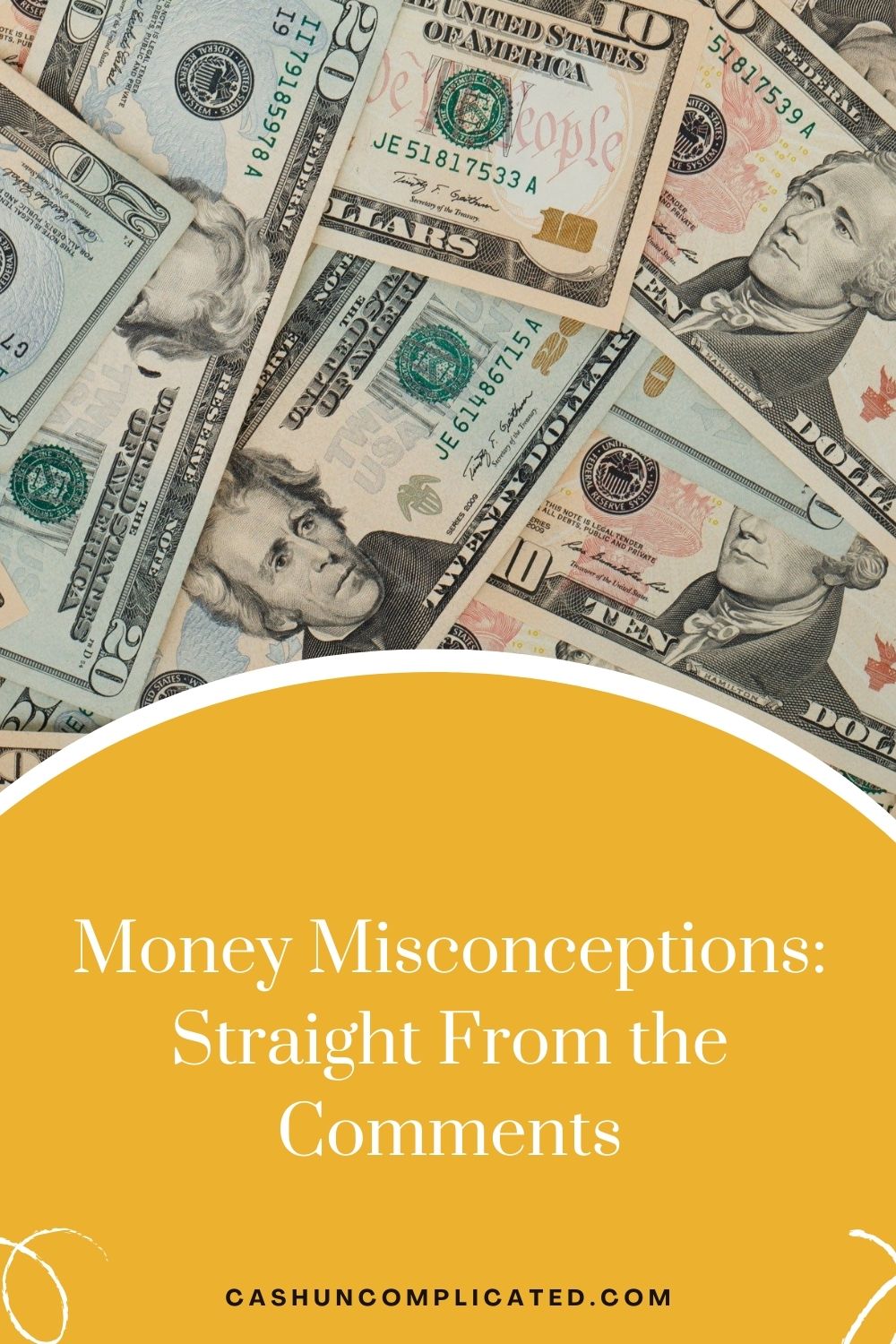A week or two ago I was reading an article about saving, investing, and retirement–some of the most popular personal finance topics. The piece itself was nothing that new so I scrolled down to the comments to see what people were saying about it. Most of the comments had so many misconceptions about money that it was scary.
This Post and Money Misconceptions
One of my pet peeves is when people spread gross misinformation with high levels of confidence. It sounds good because the person delivering it says or writes it with such great conviction that it seems strange to question. Some even throw around complex and industry jargon to strengthen their argument.
So I took some of the top money misconceptions from this post and decided to address them myself. Some of these probably sound good at first while others are just outright ridiculous.
Number 1: Good Luck Retiring on Three Million, That Will be Gone In a Few Years
Gone in three years? Says who?
According to the 4 percent rule, you can withdraw four percent of a portfolio consisting of 60 percent stocks and 40 percent bonds per year. With this withdrawal rate, there is a very good chance of your money lasting multiple years.
I wrote an entire piece about the FIRE Movement, which relies heavily on the 4 percent rule. What the research showed is that there’s a very good chance of your money lasting longer than 30 years, assuming the above allocation of stocks and bonds.
Addressing this comment directly, a three million dollar portfolio would support yearly withdrawals of $120,000, or $10,000 per month. I think most people could find a way to live off this amount, especially if they have a paid off house and vehicles, which many retirees do.
Number 2: When the Market Crashes, That Three Million Will Turn Into $100,000
Where in the world are those numbers coming from? Let’s give some real numbers here.
If the market crashed by 30 percent, a three million dollar portfolio would be down $900,000 to $2,100,000. I say down, because it’s not lost until you sell.
A 50 percent crash would cut the three million dollar portfolio in half, but again, it’s not lost until you sell.
So even with a 50 percent crash, a three million dollar portfolio would still be valued at $1,500,000. That’s a far cry from $100,000.
Getting into numbers higher than 50 percent and you’re in Great Depression territory, and are likely worrying about survival, not your portfolio.
Number 3: With Inflation, You’ll Need at Least Double That Amount
Inflation has been significant over the past couple years especially. No argument here. Inflation erodes our savings and paychecks, making daily living much more expensive.
It’s not at the level where you’d need to double a three million dollar portfolio just to get by though. Three million dollars is still a lot of money and allows for a high withdrawal rate.
Number 4: These Days You Need Over Six Million Just to Retire Middle Class
I’m not sure what the future holds, but for the time being, six million dollars is a lot of money. I’m pretty sure it will also be a lot of money 20 and 30 years from now, albeit not as much as today.
Speaking in the present moment, six million dollars will give anyone a lot more than a middle class retirement. Using the 4 percent rule, a retiree with six million dollars will be able to withdraw $240,000 per year. That’s not middle class.
$240,000 per year will more than cover above average living expenses and lots of traveling. Will you be able to stay in the highest end hotel every night when traveling? Probably not, but you’ll be just fine with that amount of money.
Number 5: That Money Will Be Gone in Less Than Five Years With Average Spending
When you’re talking multi-millions, not many people are going to be spending that all down in less than five years. Especially for those who earned their way to the money through hard work, financial literacy, solid investments, etc.
That money is likely to stay around for a long time because someone with that amount will also know how to safely withdraw it in appropriate amounts. For example, someone who has worked most of their life and accumulated a few million dollars isn’t going to just blow through it in less than five years.
That isn’t the way things work, and never will be.
Number 6: That Invested Money Will be Worth Nothing in 30 Years When You Retire
This is a comment I see all the time and laugh at. So my question to someone leaving a comment like this is what are the alternatives? Should people not invest and take their chances? Just hope for the best?
Even with inflation, ANY amount invested is better than zero. Nobody knows what the future holds but what I do know is having some resources (money) is better than having no resources. So ignore comments like this because no matter what the future holds, it’s not true.
Number 7: People Are Going to Have to Work Until They Are 70 No Matter What
If you plan it right, work will be optional at 70. The laws of money and compound interest support this. For example, someone who has five million in assets will be able to withdraw $200,000 per year if following the guidelines from the 4 percent rule.
$200,000 per year is more than plenty for most people to live on without having to go to work. Especially for those with a paid off house and no consumer debt. Someone in this position may choose to work, but it will be optional.
Conclusion
Negativity and misinformed comments are what I refer to as noise. Going down the rabbit hole with these types of comments leads to nowhere.
If you want information or opinions about personal finance and money, take it from people who have been successful. Those who are already financially independent (or well on their way), successful business owners, entrepreneurs, etc.
These are the people worth listening to and who can help you improve your own situation. Not those posting anonymous negative comments from behind their screens.
What’s the number one worst comment you’ve ever seen about money and personal finance?







